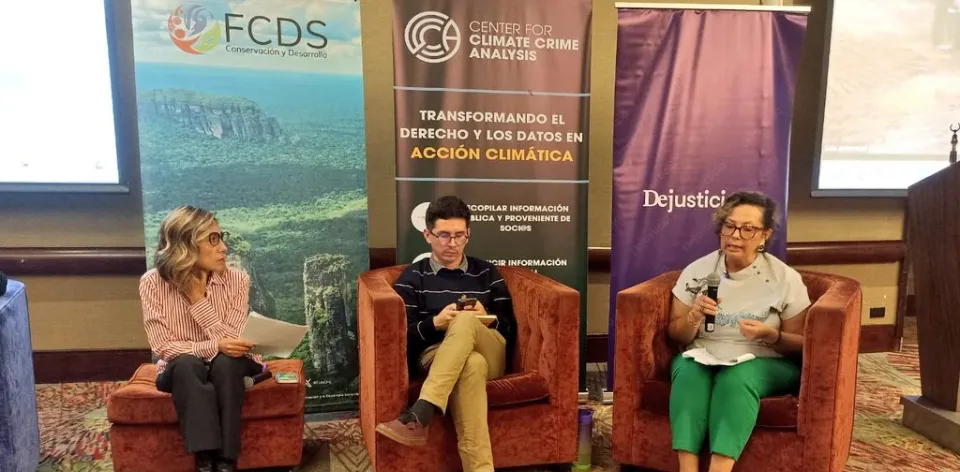 26/3/2024
26/3/2024
UPRA presented its vision in a panel discussion on livestock, deforestation, and institutional frameworks

Bogotá D. C., (@UPRAColombia, @claudialili76). During the panel discussion "Regulation and Transparency in the Livestock Supply Chain" organized by the Foundation for Conservation and Sustainable Development, The Center for Climate Crime Analysis, and Dejusticia, with the support of the Embassy of the United Kingdom in Colombia, national-level entities presented various perspectives on the topic.
In the panel on livestock, deforestation, and institutional frameworks, which involved entities such as the Office of the Attorney General, the Ministry of Agriculture, and National Parks, Adriana Pérez, technical advisor of the Rural Agricultural Planning Unit (UPRA), presented the vision and actions being undertaken by the entity:
"From the UPRA, we bring several issues to the table. We aim to advance from the environmental sector, the agricultural sector, in structuring an appropriate traceability system for the cattle chain with the information tools available in this sector."
During the panel, the official emphasized the need to strengthen peasant economies within the framework of agrarian rural reform; highlighting the role of peasants as conservation subjects to recognize peasant reserve zones as determinants of land planning, fulfilling the buffering function that corresponds to these protected areas.
"We must direct our efforts in terms of countering the drivers of deforestation, which are not only associated with livestock activity but also with land grabbing, land informality, and the need to reinforce actions and strategies to mitigate the impacts that these deforestation drivers are causing in the Colombian Amazon," the advisor pointed out.
During the event, the study by the Foundation for Conservation and Sustainable Development was presented, which concluded that there are five enabling factors that make livestock a driver of deforestation in the Amazon:
-
Low public investment (financing for livestock initiatives)
-
Poor characterization of livestock actors
-
Low traceability (unclear identification of origin, production stages, and distribution, among others)
-
Decentralization of illegal economy towards other sectors (including transit to livestock)
-
Territoriality of armed groups (livestock is used as a means to control territory)

